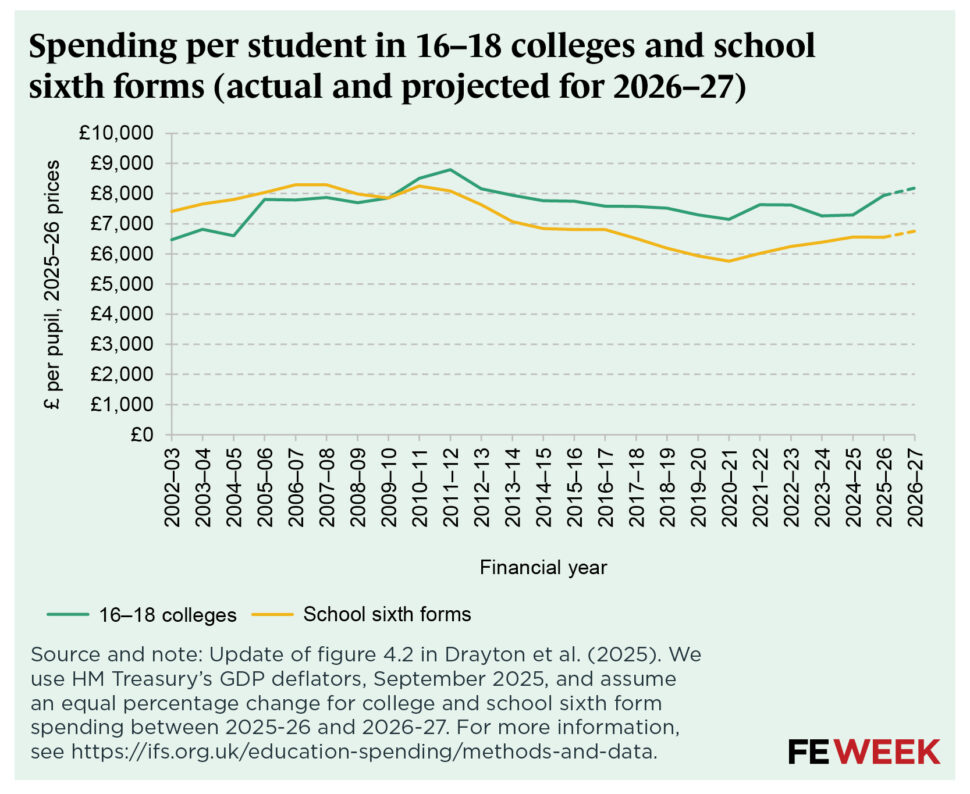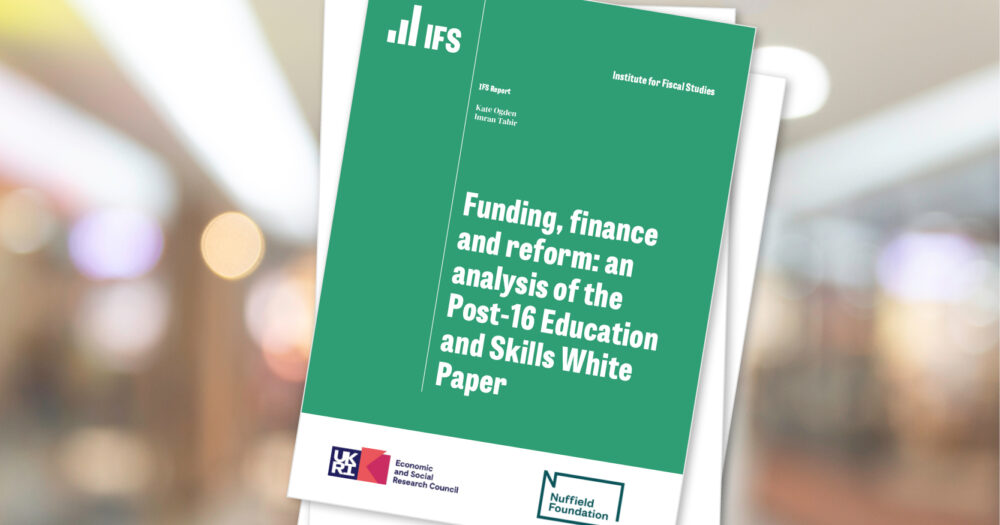Colleges face higher expectations and sweeping new responsibilities all while per-student funding continues to lag behind 2010 levels, top economists have warned.
Analysis of last month’s post-16 education and skills white paper by the Institute for Fiscal Studies (IFS) flags new qualification reforms, workforce demands and increased accountability all land while college funding remains below historic levels.
Reforms proposed in the white paper include replacing all existing vocational qualifications with V Levels, expanding T Levels, new pre-GCSE resit level 1 qualifications, new level 2 study pathways, levy-funded apprenticeship units, provider awarding powers for higher-level courses and auto-enrolment into FE for school leavers at risk of becoming NEET.
But the white paper wishes “do not always add up to a coherent overall strategy”, the think tank said, and there is “insufficient indication of how the different reforms connect”.
Two-thirds target ‘weak’
Prime minister Sir Keir Starmer’s “bold new target” for two-thirds of young people participating in higher level learning has been played up by ministers as a sign of the government’s commitment to skills.
But the IFS suggested the target may not be so bold after all.
Shortly after it was announced, Downing Street confirmed to FE Week there was no deadline for the target. Without one, IFS said today, the PM’s ambition is “constrained” and, based on trends, may have been met by the late 2030s anyway without any change in policy.
Around 50 per cent of 25 year olds were participating in higher-level learning at level 4 and above in 2022-23, up from 40 per cent in 2013.
“The higher-level learning target is constrained: it includes no time frame, and on current trends would be reached by the late 2030s even in the absence of new policy,” the report said.
It described the target, and the sub-target for 10 per cent of young people to enrol in level 4 or 5 courses by 2040, as “weak tools for driving or assessing system-wide reform”.
The targets “lack clear milestones, can be met through presentational changes, and reveal little about whether learners are accessing high-quality pathways”.
Funding below 2010s
The white paper confirmed that funding for 16-19 education will increase between academic years 2025-26 and 2026-27 by £450 million in real terms, or a 3 per cent increase per student.
While this is a “significant increase”, uprated funding per young student is still lower in real-terms than in the early 2010s by 4 per cent in colleges and 18 per cent in school sixth forms.
Based on 2025-26 prices, per-student 16-18 funding in colleges peaked in financial year 2011-12 at just under £9,000 per student. In 2024-25, that figure was just over £7,000 and is projected to be around £8,000 in 2026-27, roughly what it was in 2012-13.
“In effect, the recent increases reverse some, but not all, of the real-terms decline seen during the 2010s. At the same time, the white paper introduces a range of new expectations on colleges, including delivering new qualifications and strengthening the further education workforce, which will put additional pressures on college resources,” IFS said.

Levy limits
Funding levels for adult education, which, alongside apprenticeships, make up around 40 per cent of colleges’ collective income, were not examined as closely by the IFS as the policies featured lightly in the white paper.
But the IFS did warn that limiting new apprenticeship units, which FE Week has since learned could be as short as one week in duration, too much may hold back employers from being able to invest in their workforce.
The report said: “There are sound reasons for targeting subsidy towards regulated, high-quality provision in areas of clear labour market need. But many employers also invest in training that falls outside these categories, and limiting eligible courses may reduce the extent to which the levy supports wider workforce development.
“The challenge for the government will be to strike a balance between expanding flexibility, managing costs and ensuring that public funds support training with genuine economic value.”
The Department for Education declined to comment.
















Your thoughts